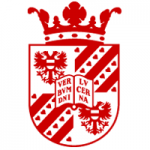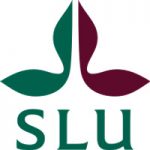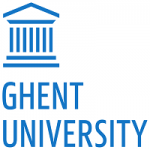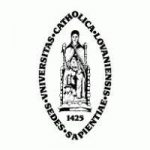项目介绍
Functieomschrijving
The origin of life remains one of the greatest mysteries in science. While many theories have been proposed, no single explanation has yet gained universal agreement. That’s where the PRELIFE consortium comes in. PRELIFE unites experts across a wide range of disciplines from astronomy, biology, chemistry, computer science, earth and planetary sciences, education, mathematics, to physics. Together we will explore two fundamental questions: How did life emerge on Earth, and how common are the conditions elsewhere in the universe?
To answer these profound questions, we will take an interdisciplinary approach, bringing together diverse perspectives to unlock new insights. But we believe this question is not just for scientists, it is for everyone. That’s why we will invite teachers, students, and the public to join us, through educational programs, artistic collaborations, and museum partnerships. We’re searching for answers to life’s biggest questions, and we need your help. As part of the PRELIFE program we offer 15 exciting research projects which can be found at www.prelife.originscenter.nl of which the research project of the current PhD position is one.
This project aims at uncovering how the capacity for Darwinian evolution may have first arisen. While parts of this puzzle have been solved, an important open question is the emergence of information transfer (inheritance), one of the three key ingredients for Darwinian evolution. Interestingly, for evolution to function, information transfer must be near-perfect, but not flawless: with perfect replication, no variation will be generated for natural selection to act on. In this joint PhD project between the University of Groningen (promotors Prof. dr. Martijn Egas and Prof. dr. Rampal Etienne) and Utrecht University (co-promotor Dr. Bram van Dijk), we aim to uncover the conditions that allow near-perfect information transfer to arise from simple interactions between simple building-blocks in early prebiotic systems.
In this project, you will use computational models to explore the minimal functional requirements for self-replication to emerge from polymerising molecules. Instead of simulating specific chemistries in full detail, we will build abstract, spatially explicit models of interacting molecules to examine which properties (features of both the building blocks and the environment) enable replication with sufficient variation and inheritance. Using an open-ended model, we will explore molecular structures of life as we know it (DNA), as well as other potential polymerisation rules. These models will also help interpret and guide experiments, e.g. the stacking fiber system pioneered by Prof. Sijbren Otto at the University of Groningen.
Organization
The University of Groningen (UG) is a research university with a global outlook, deeply rooted in Groningen, City of Talent. Quality has been our top priority for over four hundred years, and with success: the University is currently in or around the top 100 on several influential ranking lists. The Faculty of Science and Engineering (FSE) is the largest faculty within the University. We offer first-rate education and research in a wide range of science and engineering disciplines, from classical disciplines such as mathematics, astronomy and mechanical engineering as well as interdisciplinary fields, such as artificial intelligence, pharmacy and evolutionary life sciences. Our community is open with an informal atmosphere among students and staff from around the world.
At Utrecht University (UU), we work on a better future for everyone. This ambition motivates our scientists in executing their leading research and inspiring teaching. Various disciplines collaborate intensively towards strategic themes, focus areas, as well as the United Nations Sustainable Development Goals (SDGs). Theoretical Biology (a research group that includes co-promoter Dr. B. van Dijk) is part of the Faculty of Science, a collaborative, curiosity-driven environment focused on excellent research, inspiring education, and Open Science. Sharing science, shaping tomorrow.
Functie-eisen
- A computational MSc degree in biology, chemistry, or physics.
- Proven affinity with evolutionary theory.
- Willingness to work in Groningen and Utrecht throughout the project (periods to be decided under mutual agreement).
- Good command of spoken and written English.
- Experience with computational modelling of artificial life is a plus, but not required.
Arbeidsvoorwaarden
We offer, following the Collective Labour Agreement for Dutch Universities:
- a full-time position (1.0 FTE) of four years, but there is the possibility to work part-time (0.9 or 0.8 FTE).
- a salary of € 2,901 gross per month in the first year, up to a maximum of € 3,707 gross per month in the fourth year for a full-time working week
- a holiday allowance of 8% gross annual income and an 8.3% year-end bonus
- The successful candidate will first be offered a temporary position of one year with the option of renewal for another three years. Prolongation of the contract is contingent on sufficient progress in the first year to indicate that a successful completion of the PhD thesis within the next three years is to be expected. A PhD training programme is part of the agreement and the successful candidate will be enrolled in the Graduate School of Science and Engineering.
Consider our website for more information about the working conditions at the University of Groningen: https://www.rug.nl/about-ug/work-with-us/
Sollicitatie
We invite you to submit a complete application including:
- a cover letter in which you describe your motivation and qualifications for this specific position
- a curriculum vitae
- a list with names of three references, complete with title and contact information.
You may apply for this position until 10 June 11:59pm / before 11 June 2025 Dutch local time (CEST) by means of the application form (click on “Apply” below on the advertisement on the university website).
The selection interviews will likely take place during the last week of June.
The University of Groningen strives to be a university in which students and staff are respected and feel at home, regardless of differences in background, experiences, perspectives, and identities. We believe that working on our core values of inclusion and equality are a joint responsibility and we are constructively working on creating a socially safe environment. Diversity among students and staff members enriches academic debate and contributes to the quality of our teaching and research. We therefore invite applicants from underrepresented groups in particular to apply. For more information, see also our diversity policy webpage: https://www.rug.nl/about-ug/policy-and-strategy/diversity-and-inclusion/
Our selection procedure follows the guidelines of the Recruitment code (NVP): https://www.nvp-hrnetwerk.nl/nl/sollicitatiecode and European Commission’s European Code of Conduct for recruitment of researchers: https://euraxess.ec.europa.eu/jobs/charter/code
We provide career services for partners of new faculty members moving to Groningen.
Unsolicited marketing is not appreciated.
Informatie
Voor informatie kunt u contact opnemen met:
Prof. dr. Rampal Etienne, chair of the selection committee, +31 50-363 2230 gelifes-director@rug.nl
Prof. dr. Martijn Egas, +31 6-5001 9888 martijn.egas@rug.nl
Dr. Bram van Dijk, +31 6-12774799 b.vandijk@uu.nl
Extra informatie
More information about the research group at the UU
Career Paths in Science and Engineering
More information about the research group / institute at the UG
联系方式
电话: +31 50 363 9111相关项目推荐
KD博士实时收录全球顶尖院校的博士项目,总有一个项目等着你!






